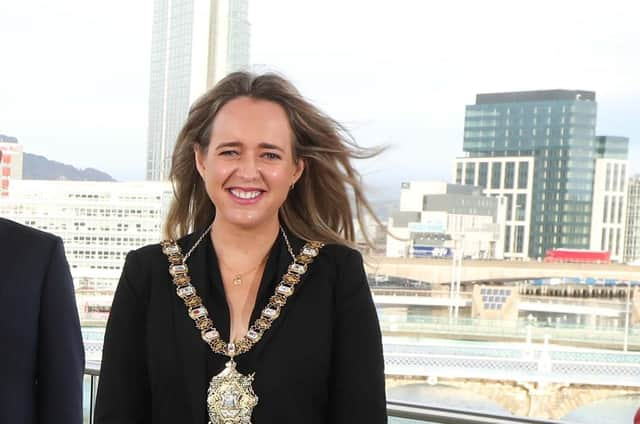Henry McDonald: Nationalism is not as open to dialogue as Belfast lord mayor thinks


Specifically, the city’s first citizen should examine some key facts around her contestable claim that Irish nationalism is somehow having a two-way conversation with unionism that she says is not being reciprocated.
Last weekend in the Belfast’s Telegraph sister paper, the Sunday Independent’s northern edition, Councillor Kate Nicholl contended:
Advertisement
Hide AdAdvertisement
Hide Ad“I see that unionism is not having the same level of conversation that nationalism is and I think they need to.”
Yet what does she mean by ‘conversation’?
If she means the genuine attempt at north-south dialogue promoted by Taoiseach Micheal Martin and others, then she may have a point.
Martin has been one of the few public voices in the Irish Republic that has taken a pluralist, respectful and rational stance when it comes to discussing Northern Ireland’s future.
The Fianna Fail leader has cautioned against the recent headlong push by the greener, more militant forces of Irish nationalism north and south for a border poll. His decent approach is rooted in what was supposed to the balanced settlement of the Belfast Agreement at the heart of which lies the principle of consent.
Advertisement
Hide AdAdvertisement
Hide AdHis ‘Shared Ireland’ outlook though is not shared even it seems by his own electorate south of the border. Nor many in his party either who are plotting to overthrow him as they are pulled away from Martin’s centrism towards the rising tide of Sinn Fein support.
There were two fascinating opinion polls before Christmas which were carried out by reputable polling organisations in the Republic.
Their findings should be absorbed by the Lord Mayor because it might just challenge her argument that Irish nationalism in general is having a ‘conversation’ about future arrangements on this island that might be acceptable to those who prefer to remain in the UK.
The first poll appeared in the Sunday Business Poll back in November. It found big support for a united Ireland but little backing for any changes south of the border that might be needed to accommodate unionists in it.
Advertisement
Hide AdAdvertisement
Hide AdThree quarters of the southern Irish electorate would oppose any new flag to replace the Tricolour and only 35 per cent polled agreed that a new all-embracing national anthem should replace ‘The Soldier’s Song’.
A second poll was published in the Irish Times in December also demonstrated that there was scant support for the type of compromises that might make a united or shared Ireland a warm place for unionists.
Only 16 per cent in this survey of 1,200 Republic of Ireland (RoI) voters agreed about the necessity to have a new flag in the New Ireland while just 21 per cent said they would accept a new anthem.
Among Sinn Fein voters — those most likely to be in favour of a united Ireland — 83 per cent would not agree to a new flag while 78 per cent refused to support an alternative anthem. Those surveyed here belong to the biggest political party in the Republic.
Advertisement
Hide AdAdvertisement
Hide AdAs for joining the Commonwealth as part of a nod to the pro-British unionists only 14 per cent of RoI citizens would agree to such a move.
If you add to this widespread support Irish President Michael D Higgins received in opinion polls after he snubbed a service to mark (not celebrate) Northern Ireland’s Centenary in Armagh you have to question if there is any real two-way dialogue going on.
Moreover, if you factor in the ongoing glorification and Disneyfication of the Provisional IRA by leading voices of mainstream republicanism, again north and south, then objectively you can be forgiven for wondering if unionists are being talked over rather than talked to.
How can you have genuine dialogue with those who still in the second decade of the 21st century insist it was justified to murder members of your community for 30 plus years? What a way to welcome you into their New Ireland!
Advertisement
Hide AdAdvertisement
Hide AdAs someone who has lived on and off in the Republic in the 1980s, 90s and 2000s, I still see an enduring paradox in the way its citizens view Northern Ireland.
While both the Irish Times and Sunday Business Post polls found strong backing for the idea of a united Ireland support for practical changes to bring it about ebb away.
In the Irish Times poll only 15 per cent were prepared to pay higher taxes to pay for Irish unity while just 13 per cent were willing to accept cuts to ROI public services to finance the absorption of Northern Ireland.
The widespread opposition however to cultural and constitutional compromises with northern unionists has not dimmed over the last couple of decades. If anything since Brexit and the explosion of Anglophobia in Irish political and media circles it has hardened. Contrary to what the Lord Mayor might argue the song remains the same and it is one from the songbook of The Wolfe Tones.